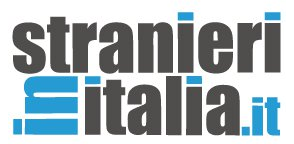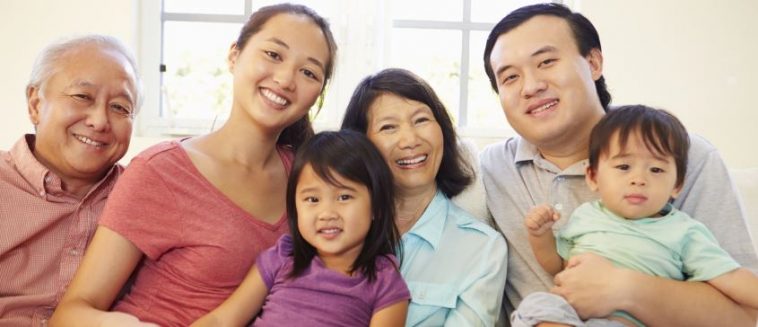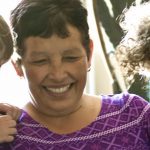A foreign citizen living in Italy, with a valid Permit of Stay has the same rights as Italian citizens to medical assistance assured by the National Health Service (Servizio Sanitario Nazionale – SSN).
Azienda Sanitaria Locale – ASL (Local health offices)
In order to obtain health and medical assistance, the foreign citizen must enrol directly at the Azienda Sanitaria Locale – ASL (Local health offices) of his/her area of residence.
ASL are offices charged with the duty of connecting the citizen to the health service network. One has to go to these offices in order to:
– choose a family doctor or paediatrician
– obtain medical certificates and prescription for medical check-ups and specialised medical visits
– ask for medical assistance at home
– undergo obligatory vaccinations
The cost of enrolling with SSN
One has to pay 388,00 euros in order to enrol with the National Health Service (Servizio Sanitario Nazionale – SSN). All who’ve declared their earnings and made income tax returns such as subordinate and self-employed workers don’t have to pay for the enrolment with SSN since is this is catered for by the taxes they pay. All they have to do is to present to the ASL in their area of residence a copy of the income tax returns together with all the other required documents.
Foreigners with a Permit of Stay for studies have to pay 149,77 to enrol with SSN. They have to deposit the money in the postal current account of the Region they live in (the account number can be obtained at the ASL in their area of residence). Once the payment has done, the students have to submit the receipt while applying to enrol with SSN.
Enrolment with the SSN is free if you are:
– unemployed, with a valid Permit of Stay and are enrolled with the employment listings
– a refugee or holding a valid certificate stating you’ve applied for political asylum
– a minor with parents in Italy who belong to any of the above mentioned categories
There are two types of enrolment with SSN: The compulsory and optional enrolment.
Compulsory enrolment in the SSN
Foreigners with a valid Permit of Stay or those who’ve applied for renewal of the permit for the following reasons must apply for enrolment with the SSN at the local health offices (ASL).
– subordinate work
– self-employment
– family reasons
– political asylum (according to Geneva’s convention)
– humanitarian reasons
– waiting to be adopted
– waiting to be granted custody
– waiting for acquisition of citizenship
Medical assistance to the family
Once you are enrolled with the SSN, all your family members under your care and who are living in the country legally have a right to medical assistance. In order to have them enrolled with SSN, you have to present a self-certification of your family status, showing that the family member(s) in question are under your care.
Also those waiting for the renewal of their Permits of Stay have a right to be enrolled with SSN.
Required documents for enrolling with SSN
– self-certification of residence or a declaration of an effective place of residence as stated on one’s Permit of Stay
– valid Permit of Stay or one in the process of renewal
– fiscal code (you can make a self-certification of this)
– a declaration stating that you will communicate any possible changes to your personal data and condition
– if you are unemployed, a self-certification of your enrolment at the employment listings
Enrolling with SSN for the first time
If the Questura asks for the enrolment with the SSN in order to issue the Permit of Stay, the foreign citizen can at the moment of entry into the country, apply for a temporary enrolment valid for three months using the receipt (cedolino) issued by the Questura.
When one finally receives the Permit of Stay, he/she has to present it to ASL to formalise the enrolment with the SSN, which will carry the same expiry date as the holder’s Permit of Stay.
Foreigners in prison
As from 1st January 200, all prisoners, both legal and illegal immigrants are automatically enrolled with SSN throughout their prison term. They are also exempted from paying the ticket. Prisoners in semi-liberty are also enrolled as well as those under alternative kinds of penalty.
Voluntary enrolment with SSN
A foreign citizen who doesn’t fall in the category of people who must enrol with SSN must all the same insure him/herself against sickness and accidents. One can choose to either stipulate an insurance premium with an insurance company or make a voluntary enrolment with SSN.
The following can make voluntary enrolment with SSN.
– managers of a company with the headquarters in Italy
– workers of a company with the headquarters abroad
– journalists who are supposed to pay income tax in Italy
– holders of Permits of Stay valid for more than three months (e.g. business, artists, etc)
The voluntary enrolment extends to one’s family members. A foreign citizen with a Permit of Stay for studies can apply for voluntary enrolment with SSN even if his/her permit is valid for less than three months. In this case the enrolment does not extend to his/her family members under his/her care.
Required documents for voluntary enrolment
– self-certification of residence or a declaration of an effective place of residence as stated on one’s Permit of Stay
– valid Permit of Stay or one in the process of renewal
– fiscal code (you can make a self-certification of this)
– a declaration stating that you will communicate any possible changes to your personal data and conditions
– a receipt showing you’ve deposited the required amount at the postal current account of the regional health institution
– students have to present a self-certification showing they are students
Medical Card (Tessera Sanitaria)
Medical Card (Tessera Sanitaria) is a document issued by the ASL showing that one is enrolled with the SSN. The following documents are required in order to obtain it:
– copy of the Permit of Stay
– fiscal code
– self-certification of residence or a declaration of an effective place of residence as stated on one’s Permit of Stay
Whoever loses his/her medical card should report it to the ASL in his/her area of residence and fill in the form to apply for a new one.
Validity of enrolment with SSN
Compulsory or voluntary enrolment with SSN has the same validity period as the Permit of Stay. If the Permit of Stay expires on 31st December, the Medical Card issued also expires on the same date.
If the Permit of Stay expires during the year, then the Medical Card issued also expires during the year (same date of expiry of Permit of Stay). While renewing the Permit of Stay, a new Medical Card is issued that will expire on 31st December. No new payment is to be done for this new card since it is covered by the yearly contribution.
Cessation of enrolment with SSN
Enrolment with SSN ceases if the Permit of Stay has not been renewed, has been revoked or annulled in case of expulsion. In these cases, you can still have access to medical assistance if you can prove to have appealed against such procedures. Enrolment also automatically ends when your Permit of Stay expires, unless you show proof of application for its renewal.
Foreigners who cannot enrol with SSN
Foreign citizens with Permits of Stay valid for less than three months can have access to the services offered by the SSN, but only after having paid the health fees stated by the relevant regional or autonomous provincial institutions. They can otherwise stipulate an insurance premium with insurance companies.
Citizens from countries with bilateral agreements or treaties with Italy covering provision of medical assistance do not have to pay the ticket. Such people have to show a document issued by the relevant medical authorities in their home country before seeking medical assistance.
Illegal immigrants present in Italy
Illegal foreign citizens who do not have a Permit of Stay or who have a Permit of Stay that has expired for more than 60 days, in case of sickness and accidents, still have a right to necessary urgent and non-urgent medical assistance even for a continued period. They can seek medical assistance in public health institutions or those operating with the national health service.
In order to have access to these services, one must go to any ASL offices and apply for a card called STP (Stranieri Temporaneamente Presenti- Foreigners temporarily in the country). This card is valid for six months and is renewable. One must declare to be poor in order to be given STP. Even though it is not necessary to present an identity document, you have to make a declaration of your personal data.
Generally access to health institutions should not be reported to government authorities. There are however, cases in which this has to be done and the rule is applicable to both Italians and foreigners. For example, for public security reasons, or if the medical assistance has been sought following an injury connected to criminal offence, such as being shot.
Holders of STP have a right to basic medical assistance, to urgent and non-urgent hospitalisation as well as to be treated in day-hospital.
They have a right to:
– urgent or necessary treatments at the outpatients’ department as well as to be hospitalised, and for continued in case of sickness and accidents
URGENT TREATMENTS: this refers to treatments that cannot be postponed because of danger to the patient’s health or life.
NECESSARY TREATMENTS: this refers to medical assistance, medical check-ups, cure to pathologies not dangerous the patient’s life immediately or in the near future, but which may lead to serious health complications.
– preventive medical treatment to safeguard the individual’s and collective health such as safeguarding pregnancy and maternity, safeguarding the minor’s health, vaccinations, international preventive measures, diagnosis and cure of infectious diseases, prevention, cure and rehabilitation of drug addicts.
Choosing a family doctor
After enrolling with SSN, it is necessary to choose a family doctor. At the ASL, you will find a list of doctors from which you can choose one. Please note that you can change the family doctor at anytime.
Doctor and paediatrician
The doctor and paediatrician are necessary for safeguarding the health of the citizens. They have the duty of making diagnosis and providing the appropriate treatment. One must choose a paediatrician for the cure of children from birth until they attain the age of 14. Once the child has attained 14 years of age, the ASL will withdraw the paediatrician and notify the family to choose a family doctor for the child. There are however cases, which must be communicated to ASL in advance so that paediatrician may be retained up to the age of 16.
Medical visits in the doctor’s studio and at home
A family doctor or paediatrician can receive you at his/her medical studio during pre-established days and hours, but if there is need, he/she can also come to attend to you at home. Medical visits at the patient’s home are only done when the medical conditions of a patient doesn’t allow him/her to go to the doctor’s studio. In case of emergency call, the visit must be carried out as soon as possible.
Medical certificates
The family doctor or paediatrician upon the request of their patients, can issue medical certificates.
There are some types of medical certificates, which must be paid for while others are issued for free.
The doctor or paediatrician on the basis of the prices set at the national level fixes the price of the certificates.
Certificates issued for free
– sick sheets, accidents or other reasons forcing the worker to be temporarily away from work
– certificate justifying the parent’s absence from work due the child’s sickness
– certificate for taking part in non-competitive sports activities at school
Certificates to be paid for
– certificate for competitive sports activities
– certificate for applying for disability status
– certificate for insurance purposes
Prescriptions (Ricette) for medicines and medical visits
In order to buy medicines or go for medical visits and check-ups, it is necessary to ask for a prescription from the doctor or paediatrician. The prescription is done for free.
With a doctor’s prescription, it is possible to book for specialised medical visit or check-ups at the chosen hospital or medical institute.
In order to purchase the medicine and undergo medical check-ups, one has to pay an amount fixed by the government. This is referred to as "Ticket".
One also has to either personally or delegate a relative to present the specialist doctor’s prescription at the prosthesis assistance office at the ASL in his/her area of residence in order to seek prosthetic assistance. The "Ticket" must also be paid for this.
The following are exempted from paying prescription charges (Ticket)
– disabled people, the blind, deaf-mute,
– children below 18 who are permanently disabled
– people who’ve had an organ removal
– diabetics, in order to obtain specific assistance (syringes, etc)
Prescription charges for medicines
As a general rule, one has to pay 2 euros for prescription for each confection of medicine. The maximum amount to be paid for each prescription is 4 euros.
This rule is not applicable to seriously sick patients or people infected with rare diseases, disabled people, persons disabled by industrial accidents and whose disability exceeds 2/3. In these cases, one has to pay 1 euro for each confection, 3 euros for three confections.
There are categories of people exempted from paying prescription charges for medicines. These are:
– totally disabled people, victims of terrorism and organised crime, blind, deaf-mute; people on pension; patients undergoing painful therapy; people over 60 who are receiving minimum pension benefits with a family to care for, as long as the family’s income doesn’t exceed 8.263,31 euros; if one is taking care of the spouse, with an income not exceeding 11.362,05 euros. To this amount, one has to add 516,45 euros for each child under his/her care; those whose disability exceeds 2/3, or those receiving invalidity benefit from the State
Prescription charges for specialised medical assistance
The amount to be paid in order to undergo specialised medical visits or tests depends on the type of visit and test to be undertaken. The following are exempted from paying prescription charges.
– citizens who are either below 6 or over 65, if they belong to a nuclear family with an income not exceeding 36.151,98 euros in the past year
– social pensioners with families to cater for
– unemployed, those over 60 who are receiving minimum pension benefits with a family to care for, as long as the family’s income doesn’t exceed 8.263,31 euros; if one is taking care of the spouse, with an income not exceeding 11.362,05 euros. To this amount, one has to add 516,45 euros for each child under his/her care; those whose disability exceeds 2/3, or those receiving invalidity benefit from the State
– those who’ve had accident at workplace, and all belonging to those categories of people exempted from paying prescription charges because of pathologies or conditions identified by the special laws
Some medical assistances are not subject to prescription charges even if the citizen doesn’t belong to the above listed categories. These are:
– breast cancer early detection tests (Mammography, paptest, etc)
– medical assistance required for safeguarding pregnancy, e.g., tests, ultrasound scanning, etc.
– Medical assistance aimed at promoting donation of blood, organs, and non-obligatory vaccinations for children up to the age of 14.
Family planning clinics
Every ASL has family planning clinics which according to the law, must offer services free of charge.
It is not necessary to have the family doctor’s prescription in order to have access to these services. The family planning clinics have to assist pregnant women even those without a Permit of Stay and their children until they reach the age of 18.
These clinics offer assistance and guidance on the woman’s health to those who are pregnant or to those who decide to terminate their pregnancy. They also offer gynaecological assistance, prevention and diagnosis for tumours in the female genital apparatus, family mediation, vaccination against German measles for women in a fertile age, etc.
Many ASL structures also have special advisory centres for the following specific cases:
Advisory centre for drugs and Aids, where one can be offered guidance on use of drugs, and medical tests.
Advisory centre for social and psychological problems, where there is either a psychologist or a social worker offering counselling services on personal or social problems, or on interpersonal relationships.
Medical assistance to pregnant women
A foreign pregnant woman has a right to medical assistance even if she is in the country illegally. She doesn’t have to pay the ticket for medical assistance and for all the tests and special treatments required for safeguarding pregnancy.
Terminating pregnancy
According to Italian law, you can terminate pregnancy within 90 days of conception. After this period, pregnancy can only be terminated if the mother’s life is in danger due to pregnancy, or if the baby risks being born with serious malfunctions that will put the baby in serious physical or mental condition. In order to terminate pregnancy, one has to seek medical assistance of her family doctor or seek assistance at the family planning clinics at the local ASL.
Vaccinations
Vaccines are medicines meant to help the body protect itself against infectious diseases. Vaccination is a sure and effective way of protecting one’self against contracting some serious diseases. There are different types of vaccines.
Child vaccinations: Usually combined with routine children’s medical examinations, child vaccinations help children develop immune system against the dangerous diseases they are vaccinated for. The following vaccinations are obligatory in Italy: vaccination against diphtheria, tetanus, polio, Hepatitis B.
The other vaccines strongly recommended even though they are not obligatory are: Pertussis Vaccine BP, Haemophilus influenzae type B vaccine, Measles, mumps, and rubella vaccine.
Obligatory and recommended vaccinations in Italy
Age: Name of vaccine
At 3 months Diphtheria*/Tetanus*/Polio*/Hepatitis B*/Pertussis Vaccine BP/HIB
At 5 months Diphtheria*/Tetanus*/Polio*/Hepatitis B*/Pertussis Vaccine BP/HIB
At 11-12 months Diphtheria*/Tetanus*/Polio/*/HIB/ Hepatitis B*
At 13-15 months Measles/mumps/rubella vaccine
At 3 years Polio*
At 5-6 years Diphtheria*/Tetanus*/Pertussis
At 12 years Measles/mumps/rubella vaccine
At 14-15 years Diphtheria*/Tetanus*
* Obligatory vaccinations
Adult Vaccinations are optional. All adults over 65 should be vaccinated against influenza, pneumococcal disease, and tetenus. All adults should be vaccinated against tetenus. Some adults, even if under the age of 65, belong to high-risk groups and should therefore be vaccinated against Hepatitis B and pneumococcal disease.
Urgencies and Emergencies
In case one cannot consult his/her family doctor, or in serious cases, one can seek medical assistance from any of the following: Guardia Medica, 118, First Aid Centre (Pronto Soccorso)
Guardia Medica (The free service emergency doctor)
This is a free medical assistance one can ask for by phone in case of emergency when it is not possible to contact one’s family doctor or paediatrician; at night or on holidays. By calling the local number (each town has a different one), one can talk with a doctor who will advice on what should be done. If necessary, the doctor will come visit the patient at home. After the home visit and initial treatment, the doctor can prescribe medicine, issue sick sheet, or ask for the patient to be admitted.
118: The Emergency number
For acute and emergency medical care, accidents, in peril of one’s life, heart attack, one can dial 118. This service is on 24 hours a day, throughout the year. In cases of emergency it guarantees the immediate sending of an ambulance to pick the patient and rush him/her to the hospital. There are no charges for dialling 118 whether one calls from landline or mobile phone.
First Aid Centre (Pronto Soccorso)
Anyone who is not feeling well can go to the First Aid Centre (Pronto Soccorso) at all hospitals in the country. The services at the First Aid Centre are not offered on first come first served basis but on the basis of the health condition of the patient. There are four codes and colours used to establish the access priority to the service. Those having acute dangerous health problems are attended to first. The colours correspond to levels of urgency.
Code 1: RED:
EMERGENCY
Patient is in a critical condition, must be attended to immediately
Code 2: YELLOW:
URGENT
Serious injury, needs urgent medical assistance, and should not be made wait longer
Code 3: GREEN:
LESS URGENT
No danger, patient can be attended to after the most critical patients have been attended to.
Hospitalisation
If there is urgent need for hospitalisation, the doctor at the First Aid Centre can handle the whole procedure. But if there is no urgent need for hospitalisation, the family doctor or paediatrician can issue a sheet applying for hospitalisation to be taken to the hospital of the patient’s choice.
Do I have to pay for hospitalisation?
Hospitalisation expenses are catered for by the National Health Service (Servizio Sanitario Nazionale – SSN). The medical staff must inform the patient of all the side effects of surgical operations, anaesthesia, etc. The patient must also be informed of the alternative treatments. Before being operated the patient has to consent and sign for it or refuse to be operated.



